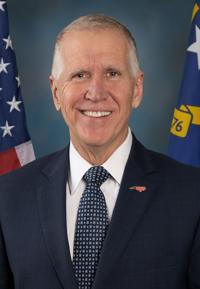(The Center Square) – A major shift is underway in the way large companies talk about and fund Diversity, Equity and Inclusion programs.
President Donald Trump began the transition when he signed an executive order last month eliminating DEI policies and staff at the federal government and extending the anti-DEI policy to federal contractors.
Private companies, some of which had already begun the transition before Trump took office, remarkably began backing off their DEI policies, even if only symbolically with little internal change.
Costco resisted, pushing back on the Trump administration, but other major brands like Amazon Wal-Mart, Target, and Meta announced a pullback from DEI. Media reports indicated DEI discussions on earnings calls has plummeted.
Others, such as Wisconsin-based financial services company Fiserv, have not yet made a change, at least not publicly.
A murky legal future awaits companies willing to take the risk to stick with DEI policies, particularly in hiring.
Fiserv receives hundreds of millions of dollars in government contracts.
According to Fiserv’s website’s Diversity & Inclusion page, the company is “committed to promoting diversity and inclusion (D&I) across all levels of the organization, in our communities and throughout our industry.”
Fiserv says that it “partner[s] with people and organizations around the world to advance our D&I efforts and create opportunities for our employees, entrepreneurs around the world and the next generation of innovators.”
The company’s diversity and inclusion page includes a careers section that discusses “engaging diverse talent” and events to connect with “diverse candidates.”
Critics of DEI initiatives and policies say they discriminate against white men and Asians and lead to hiring and promotion decisions based on factors such as race and sexual orientation rather than merit.
In its 2023 Corporate Social Responsibility Report, the company boasted that “60% of director nominees for the 2024 annual meeting reflect gender or racial/ethnic diversity.”
According to an April 2024 report from Payments Dive, Fiserv was “buoyed by sales to government entities” in Q1 of 2024 and reported $500 million in revenue from those contracts. The U.S. Coast Guard contracted with Fiserv in 2024 to help with payroll, according to HigherGov, among other government contracts.
Fiserv did not respond to multiple requests for comment.
A watershed moment against DEI came when during the Biden administration, the U.S. Supreme Court ruled against longstanding affirmative action policies at American universities, one key example of white and Asian Americans being discriminated against.
Trump’s election has only solidified the new legal framework for what is permissible when considering race and gender in hiring, promotion, and workplace etiquette.
From Trump’s order:
In the private sector, many corporations and universities use DEI as an excuse for biased and unlawful employment practices and illegal admissions preferences, ignoring the fact that DEI’s foundational rhetoric and ideas foster intergroup hostility and authoritarianism.
Billions of dollars are spent annually on DEI, but rather than reducing bias and promoting inclusion, DEI creates and then amplifies prejudicial hostility and exacerbates interpersonal conflict.
DEI has become increasingly controversial as activists use the moniker to advance every liberal policy on race and gender, often at taxpayer expense. In the federal government, DEI had become widespread and infiltrated into every part of governance, from racial quotas for promotions at the Pentagon to driving healthcare research at the National Institutes of Health.
At private companies, DEI policies guided investment decisions via ESG (Environmental, Social Governance) as well as personnel decisions with racial quotas for company board rooms. Those ideas are out of favor with the Trump administration.
Some of the companies resisting the shift from DEI could face legal action.
A coalition of state attorneys general sent a letter to Costco alleging it is violating the law, as The Center Square previously reported.
“Although Costco’s motto is ‘do the right thing,’ it appears that the company is doing the wrong thing – clinging to DEI policies that courts and businesses have rejected as illegal,” the letter said.
This week, Missouri Attorney General Andrew Bailey filed a lawsuit against Starbucks for similar policies.
“By making employment decisions based on characteristics that have nothing to do with one’s ability to work well, Starbucks, for example, hires people by thumbing the scale based on at least one of Starbucks’ preferred immutable characteristics rather than an evaluation of an applicant’s merit and qualifications,” the lawsuit said. “Making hiring decision on non-merit considerations will skew the hiring pool towards people who are less qualified to perform their work, increasing costs for Missouri’s consumers.”
A 2022 Starbucks document touts a DEI goal: “By 2025, our goal is to achieve BIPOC representation of at least 30% at all corporate levels and at least 40% at all retail and manufacturing roles.”
Bailey called the Starbucks policies discriminatory and illegal.
“With Starbucks’ discriminatory patterns, practices, and policies, Missouri’s consumers are required to pay higher prices and wait longer for goods and services that could be provided for less had Starbucks employed the most qualified workers, regardless of their race, color, sex, or national origin,” Bailey said. “As Attorney General, I have a moral and legal obligation to protect Missourians from a company that actively engages in systemic race and sex discrimination. Racism has no place in Missouri. We’re filing suit to halt this blatant violation of the Missouri Human Rights Act in its tracks.”


















































